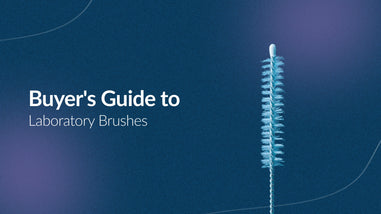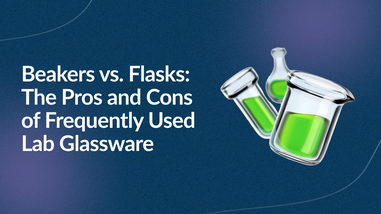- No products in the cart.
As a scientist, having the right tools at your disposal is key to conducting accurate and reliable experiments. Lab consumables are essential for achieving this goal, as they are used in a wide range of applications, including sample preparation, analysis, and storage. In this article, we will highlight the top 10 essential lab consumables every scientist needs in their laboratory and provide information on how to properly store and use each consumable.
1. Pipettes and Pipette Tips
Pipettes are essential for transferring precise amounts of liquids from one container to another. They come in various sizes and types, including single-channel, multichannel, and electronic pipettes. Pipette tips are disposable and come in different volumes, shapes, and materials. Proper storage is essential to keep pipettes and pipette tips clean and accurate. Store them in a clean, dry, and dust-free environment, away from heat and sunlight.2. Centrifuge Tubes
Centrifuge tubes are used for separating liquids of different densities, such as blood or urine samples. They come in various sizes, materials, and types, including conical, round bottom, and self-standing. It is crucial to choose the right centrifuge tube for the application and to properly label and store them. Store them in a rack or holder to prevent them from tipping over or getting damaged.3. Microplates
Microplates are used for high-throughput screening, sample storage, and other applications that require the use of a large number of samples. They come in various sizes and types, including 96-well, 384-well, and 1536-well plates. Proper storage is critical to prevent contamination, evaporation, or degradation. Store them in a dry, cool, and clean environment, away from direct light and heat.4. Beakers and Flasks
Beakers and flasks are used for mixing, measuring, and storing liquids. They come in various sizes and materials, including glass, plastic, and stainless steel. Proper storage and handling are essential to prevent breakage, contamination, or spills. Store them in a designated area, away from other lab equipment, and handle them with care.5. Petri Dishes
Petri dishes are used for culturing microorganisms, such as bacteria or fungi. They come in various sizes and materials, including glass and plastic. Proper storage and handling are crucial to prevent contamination or drying out of the agar. Store them in a sterile container, away from direct light and heat, and handle them with sterile techniques.6. Microcentrifuge Tubes
Microcentrifuge tubes are used for storing and transporting small volumes of liquids, such as DNA or protein samples. They come in various sizes and materials, including polypropylene and glass. Proper storage is essential to prevent contamination, evaporation, or degradation. Store them in a dry, cool, and clean environment, away from direct light and heat.7. Gloves
Gloves are essential for protecting yourself and your samples from contamination or injury. They come in various materials, including latex, nitrile, and vinyl. Proper storage and handling are crucial to prevent damage or contamination. Store them in a clean, dry, and dust-free environment, away from heat and sunlight.8. Filter Paper
Filter paper is used for separating solids from liquids, such as removing particles from a solution or filtering a precipitate. It comes in various sizes and materials, including cellulose and glass fiber. Proper storage is essential to prevent contamination, moisture, or degradation. Store them in a dry, cool, and clean environment, away from direct light and heat.9. Microscope Slides and Coverslips
Microscope slides and coverslips are used for observing and analyzing samples under a microscope. They come in various sizes and thicknesses, and are typically made of glass or plastic. Microscope slides are flat, rectangular pieces of glass or plastic that hold the sample, while coverslips are small, thin pieces of glass or plastic that are placed over the sample to protect it and improve clarity.10. Personal protective equipment (PPE)
Personal protective equipment (PPE) lab consumables are also essential for laboratory safety. PPE such as gloves, lab coats, safety glasses, and face shields help protect laboratory personnel from hazardous materials and chemicals. Disposable gloves, for example, are used to prevent contamination and protect against chemical exposure. Lab coats protect clothing from spills and splashes, while safety glasses and face shields protect the eyes and face from potential hazards. Proper selection, use, and disposal of PPE lab consumables is critical for preventing injuries and ensuring safe laboratory operations.
In conclusion, having the right lab consumables is crucial for every scientist to perform experiments accurately and safely. While there are many other types of consumables that could be included on this list, these 10 are among the most essential. By properly storing and using these consumables, scientists can ensure the accuracy and reproducibility of their results, as well as the safety of themselves and others in the lab.
About Lab Pro
For over 40 years, Lab Pro Inc. has been committed to delivering the highest quality lab consumables, hand tools, chemicals, lab equipment, lab supplies, and cleanroom PPE apparel to medical device companies and laboratories worldwide. To learn more contact us online or at 888-452-2776.












































